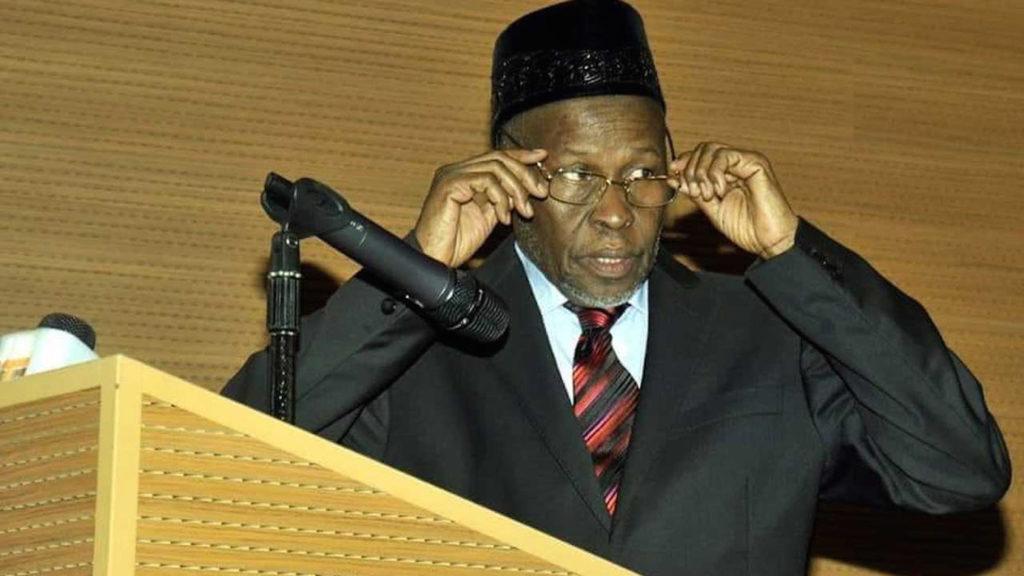The oath taking ceremony of some Court of Appeal Justices at the Supreme Court complex in Abuja on Monday was marred by the discrimination meted out to one of the female justices whose name was removed on the basis of a controversial petition against her on the grounds that the state she represents is not her state of origin.
A list of twelve Justices was initially released by the apex court for the swearing ceremony but the inclusion of Justice Ifeoma Jombo-Ofo, who was appointed a High Court judge on 4th November 1998 following her call to Bar in 1979, as representing Abia state where she had served for many years after her marriage to Mr. Jombo- Ofo, an indigene of the state, drew the ire of some indigenes of the state.
Information gathered from the apex court indicate that a petition was forwarded to the Chief Justice of Nigeria, Justice Mariam Aloma Mukhtar, alleging that Justice Jombo-Ofo did not disclose the truth of her state of origin. She is originally from Anambra state before her marriage and subsequently transferred her service from her home state to her husband’s state of Abia.
Those behind the petition were reported to have mounted intense pressure and arm twisting techniques to foil her elevation to the appellate court.
Not even a spirited effort by Abia state governor, Theodore Orji, could save the day for Justice Jumbo-Ofo. The governor had written a letter to the Chief Justice of Nigeria last Saturday confirming the indegenship of Justice Jumbo-Ofo who had served in the Abia state Judiciary for that last 14 years and also affirmed that her name was indeed sent by the state government as one of the state’s candidates for elevation to the appellate court. Governor Orji urged the CJN to disregard any spurious petition or allegation against her indegenship and swear her in.
Last Wednesday during the valedictory court session for Justice Olufunlola Adekeye on her retirement from the Supreme Court bench, Justice Adekeye had implored the Chief Justice of Nigeria, the Chief Judges of the states, the Judicial Service Commission and the National Judicial Council to review the policy that married women cannot reach the peak of their career in their husband’s state of origin.
Adekeye noted that complaints of this nature are becoming increasingly rampart within the judiciary and stated that most women transfer their services to the state of origin of their husbands immediately after their marriage which, according to her, is logical and in compliance with the tenets of marriage that the two spouses shall become one.
The now retired jurist regretted that whenever there is vacancy at the top in the husband’s state of origin, the woman will be denied the post and there and then referred to her own state of origin, after climbing the ladder and putting so many years into the service. An indigene of the state wil then be fished out to take the position.
She further observed that the woman would have huddles to cross in her own state of origin as she did not work there and the authorities in her state of origin will not be in a position to assess her suitability for the post properly.
“It is my view that during the existence of her marriage, the name of her husband must qualify and make her eligible to reach the peak of her career in her husband’s state. I think it is unconstitutional as well as discriminatory to deprieve her of her promotion in her acquired state as a citizen of Nigeria, by virtue of Section 42 of 1999 9onstitution of the Federal Republic of Nigeria”
Section 42 of the constitution provides as follows: (1) A citizen of Nigeria of a particular community, ethnic group, place of origin, sex, religion or political opinion shall not, by reason only that he is such a person:-
(a) be subjected either expressly by, or in the practical application of, any law in force in Nigeria or any executive or administrative action of the government, to disabilities or restrictions to which citizens of Nigeria of other communities, ethnic groups, places of origin, sex, religions or political opinions are not made subject; or
(b) be accorded either expressly by, or in the practical application of, any law in force in Nigeria or any such executive or administrative action, any privilege or advantage that is not accorded to citizens of Nigeria of other communities, ethnic groups, places of origin, sex, religions or political opinions.
Those who were sworn in today are Justices Ibrahim S. Bdliya, who was called to Bar in 1976 and appointed a High Court judge on August 20, 1987; Abiriya James Shehu, called to Bar in 1979 and subsequently appointed a High Court Judge on September 17, 1993; and Obietonbara O. Daniel-Kalio, who was called to Bar and became a High Court Judge in 1981 and October 30, 1995 respectively.
Others are Justices Onyekachi Otisi, called to Bar in 1980 and sworn in as a High Court Judge in November, 1998; Stephen Jonah Adah, called to Bar in 1982 and appointed a High Court Judge on November 12, 1998; Tinuade Akomolaje-Wilson who was sworn in as Judge on May 3, 1999 having being called to Bar in 1975; and Fatima Akinbami, who was called to Bar in 1977 and sworn in as High Court Judge on May 12, 1999.
The rest are Justices Habeeb Adewale Abiru, who was called to Bar in 1985 and appointed to the High Court Bench in May, 2001; Peter Olabisi Ige, sworn in as High Court judge on June 27, 2001 following his call to Bar in 1985; Tijani Abubakar, called to bar in 1985 and sworn in as a High Court Judge in 2004; and Emmanuel Agim who was sworn in as a High Court judge in 2008.





